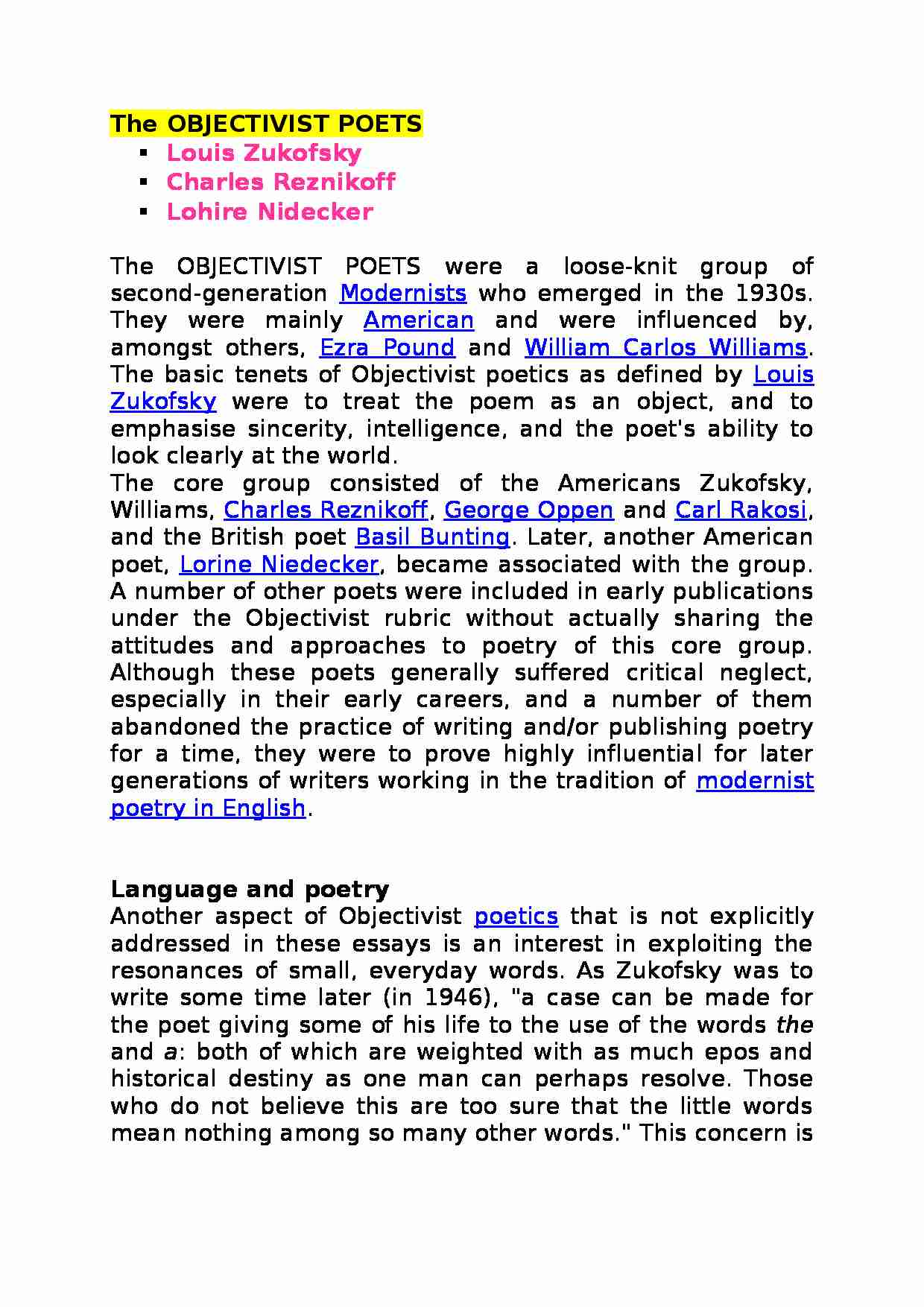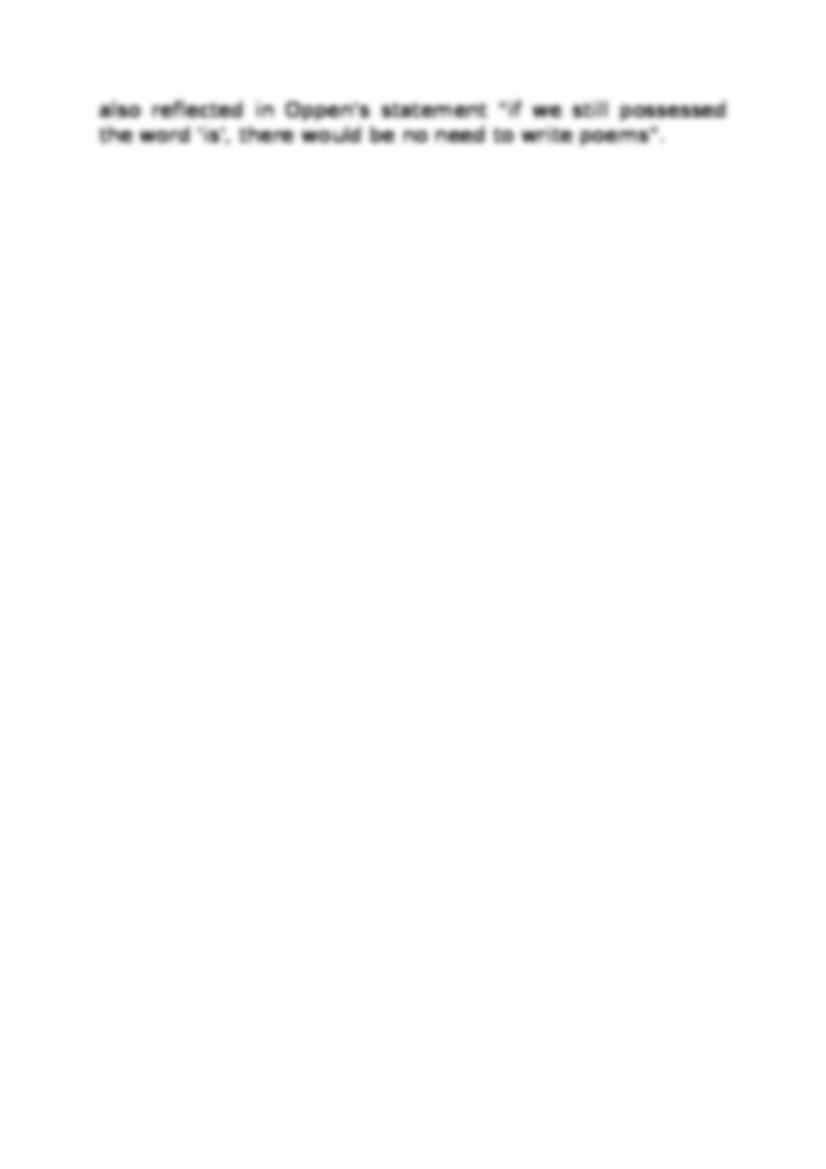To tylko jedna z 2 stron tej notatki. Zaloguj się aby zobaczyć ten dokument.
Zobacz
całą notatkę


The Objectivist poets
Louis Zukofsky
Charles Reznikoff
Lohire Nidecker
The Objectivist poets were a loose-knit group of second-generation Modernists who emerged in the 1930s. They were mainly American and were influenced by, amongst others, Ezra Pound and William Carlos Williams. The basic tenets of Objectivist poetics as defined by Louis Zukofsky were to treat the poem as an object, and to emphasise sincerity, intelligence, and the poet's ability to look clearly at the world.
The core group consisted of the Americans Zukofsky, Williams, Charles Reznikoff, George Oppen and Carl Rakosi, and the British poet Basil Bunting. Later, another American poet, Lorine Niedecker, became associated with the group. A number of other poets were included in early publications under the Objectivist rubric without actually sharing the attitudes and approaches to poetry of this core group. Although these poets generally suffered critical neglect, especially in their early careers, and a number of them abandoned the practice of writing and/or publishing poetry for a time, they were to prove highly influential for later generations of writers working in the tradition of modernist poetry in English.
Language and poetry
Another aspect of Objectivist poetics that is not explicitly addressed in these essays is an interest in exploiting the resonances of small, everyday words. As Zukofsky was to write some time later (in 1946), "a case can be made for the poet giving some of his life to the use of the words the and a: both of which are weighted with as much epos and historical destiny as one man can perhaps resolve. Those who do not believe this are too sure that the little words mean nothing among so many other words." This concern is also reflected in Oppen's statement "if we still possessed the word 'is', there would be no need to write poems".
... zobacz całą notatkę




Komentarze użytkowników (0)